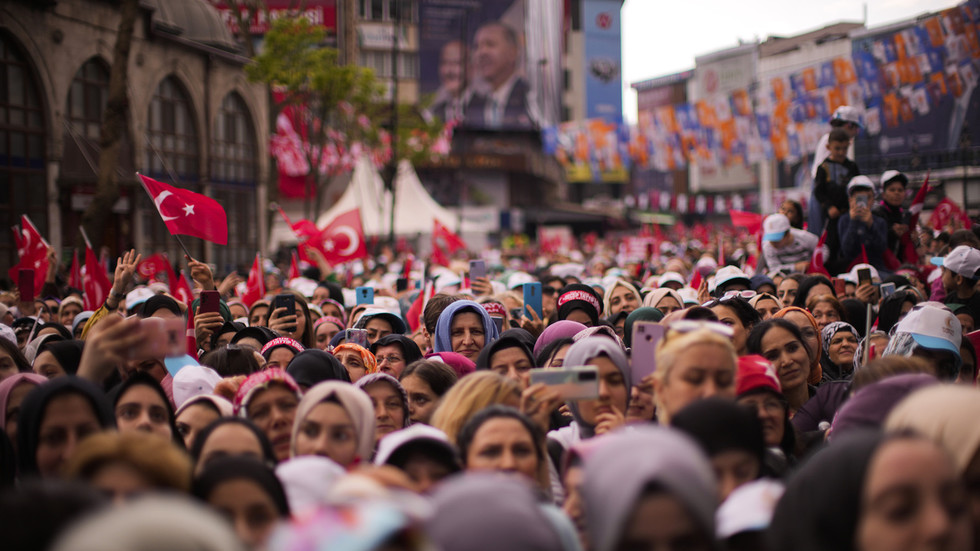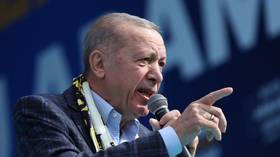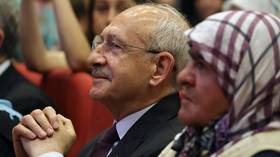
The results will determine the country’s course for the next five years

FILE PHOTO © AP / Francisco Seco
The polls have opened across Türkiye in a runoff election that will determine whether conservative President Recep Tayyip Erdogan will retain power, or hand the reins over to his more liberal opponent, Kemal Kilicdaroglu.
Polling stations opened at 8am local time in all 81 provinces, with more than 60 million people eligible to vote in Sunday’s runoff. Another 3.4 million Turkish citizens were eligible to vote abroad over the past week, but it is unknown how many cast their ballots. In the first round on May 14, turnout was almost 89% within the country, but only 49.4% abroad.
News, forecasts, and commentary on the elections are not permitted until 6pm local time, one hour after the polls close. The results cannot be reported until 9pm. However, with just two candidates facing off, the Supreme Election Board may unveil preliminary results earlier. The first round was held simultaneously with the parliamentary elections, and the complexity of the ballots caused delays and criticism from the opposition.

The two rivals hold opposing views on a range of policies, and the outcome of the election may determine the country’s course for the next five years.
Erdogan is a social conservative who has served as president since 2014, and was prime minister for 11 years beforehand. Under his leadership, Türkiye has pursued closer trade and diplomatic ties to Russia and China, while positioning itself as a potential peacemaker in regional conflicts, including in Ukraine.
Kilicdaroglu is a centrist seeking to undo many of Erdogan’s domestic reforms, particularly the post-2016 constitutional changes that strengthened the powers of the presidency. He has vowed to immediately restart EU accession talks if elected, and to resuscitate Türkiye’s economy.

The first round ended inconclusively, with no candidate meeting the 50% threshold to win outright. Erdogan garnered 49.5% of the votes, while Kilicdaroglu received 44.9%. The third-place finisher, Sinan Ogan, won 5.17% and has since officially endorsed the incumbent.
Some 50 Muslim scholars have also endorsed Erdogan, who has portrayed himself as a defender of traditional Islamic values against the more liberal Kilicdaroglu, who he once described as “an LGBT person.” In response, the secularist politician stepped out of character on Friday, declaring it “a sin” to vote for Erdogan, and that “sincere Muslims” would not commit such an act.




